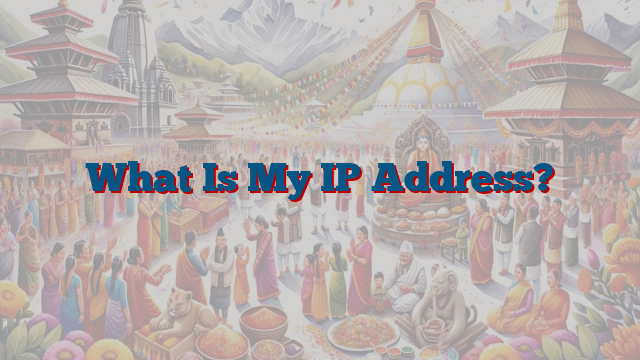
An IP address, or Internet Protocol address, is a numerical label assigned to each device connected to a computer network that uses the Internet Protocol for communication. IP addresses serve two main functions: host or network interface identification and location addressing.
Your IP Address is:

114.119.138.172
Your ISP is:
Huawei International Pte. Ltd.
North West, Singapore – 03
Singapore, SG
Continent: Asia
Lalitude: 1.352
Longitude: 103.8198
Timezone: Asia/Singapore
Currency: SGD
Mobile: 0
Proxy: 0
Hosting: 1
Browser: Handheld Browser
Operating System: Android
There are two types of IP addresses:
IPv4 (Internet Protocol version 4): This is the most widely used version of IP addresses. It consists of a 32-bit numerical label, typically displayed as four sets of numbers separated by periods (e.g., 192.168.1.1).
IPv6 (Internet Protocol version 6): Due to the increasing number of devices connected to the internet, IPv6 was introduced to provide a larger address space. IPv6 uses a 128-bit address format, expressed as hexadecimal digits separated by colons (e.g., 2001:0db8:85a3:0000:0000:8a2e:0370:7334).
IP addresses are essential for routing data packets between devices on a network. Every device connected to the internet, including computers, smartphones, tablets, and servers, is assigned a unique IP address. When you access a website or send information over the internet, your device’s IP address is used to identify and route the data to the correct destination.
There are two types of IP addresses: public and private.
Public IP Address: This is the address assigned to your device by your Internet Service Provider (ISP) and is visible to the outside world. It is used for communication over the internet.
Private IP Address: This is the address assigned to a device within a local network (e.g., your home or office network) and is not directly accessible from the internet. Devices within a local network use private IP addresses to communicate with each other, and a router performs Network Address Translation (NAT) to allow these devices to access the internet using the router’s public IP address.
Understanding IP addresses is crucial for networking and internet communication, and they play a fundamental role in the functioning of the global internet.
